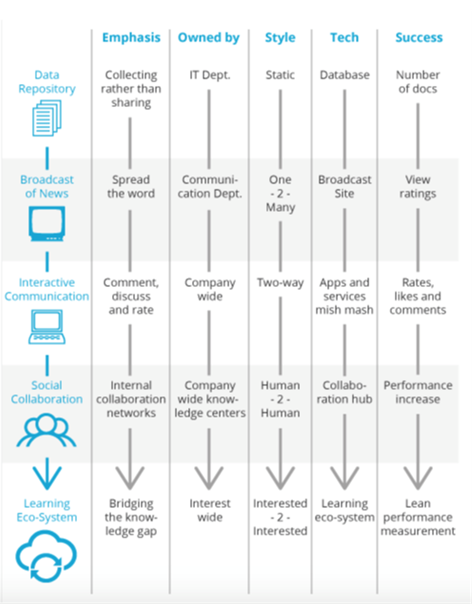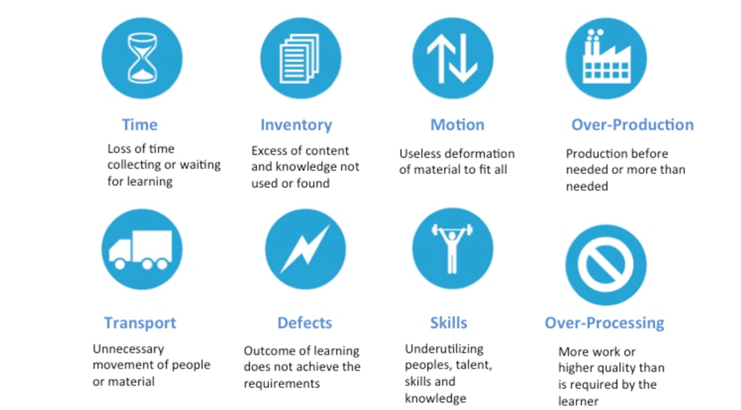LearnScapes: Redesigning learning ecosystems to encourage people-centric innovation
- 6 Min Read
HR professionals must claim their role to help drive their organization’s strategy by focusing on people-centered innovative learning ecosystems that foster growth, according to Katja Schipperheijn.
- Author: Katja Schipperheijn
- Date published: Sep 19, 2023
- Categories

Learning Ecosystems seem to be the hype of the moment. Yet HR leaders too often focus its interpretation on training employees. From a more holistic approach, a learning ecosystem should be a strategic framework for a comprehensive approach that orchestrates employee development and organizational growth. It is a concept that is aligned with business goals and uses various resources and technologies to cultivate a culture of learning and innovation within the company. So, in this article, I’d like to discuss some crucial components that support strategic learning ecosystems and the role HR needs to take in it.
Innovative, AI-powered learning ecosystems support lean learning and performance management

An important distinction to make in the learning ecosystems we are implementing today is that they use human-centered artificial intelligence for Lean Learning and efficient data and knowledge management. Learning Ecosystems that leverage intelligent symbiosis between humans and machines therefore have positive effects on organizational growth. Yet the majority of executives today do not yet commit to this. More so, the more significant part of today’s organizations are still at the Data Repository stage that I first described in 2014. These organizations are sitting on a mountain of knowledge and data that they do not use efficiently and effectively to support the growth of the organization.
I am not saying that data systems (CMS) no longer have their place in nimble organizations. On the contrary, they have an enormous added value now that we can integrate them via AI with other systems that support knowledge management. Knowledge is scattered throughout most organizations, making it a challenge to get relevant information to the right person at the right time.
An excellent example of this is the so-called Knowledge Experience Platforms (KXP) that more and more consulting companies and even sales organizations implement. Consider it as a superbrain or spider web that connects many systems, allowing the efficiency and overall performance of the organization to grow exponentially. It may seem futuristic but in no time these KXPs bring together the most relevant information from Content Management Systems, LMS, and even mail servers and personal social media of the employees. Add to that the power of Large Language Models LLMs such as ChatGPT, and the report or proposal writes itself almost automatically.
HR in the lead for human-centered knowledge management
The above provides a great example of what technology can do, but what about the human expertise and knowledge stored in the heads of employees? Up to this point, I haven’t observed any imminent innovations that can scan the human brain to automatically share this valuable knowledge within the learning ecosystem. HR therefore plays a crucial role if we also want to link this human dimension to the knowledge of the learning ecosystem.
Many organizations struggle with the waste of skills stuck in the heads of employees without benefiting the learning ecosystem. Not surprising of course because unlike other forms of waste that lean learning development needs to address, this one is often less visible. However, through (hopefully automated) performance reviews, organizations should be able to gain insight into the expertise and competencies that their employees possess. The only question then is how do we encourage employees to share knowledge that they might not even be aware they’re having?

A human-centric case study
I encountered a compelling instance at an organization where, when exploring knowledge within their learning ecosystem, they consistently prioritized experts by placing them at the forefront of the most pertinent sources. The organization complemented this with an engaging gamification method. If an expert’s assistance fell short, their ranking would decrease, but conversely, their status could ascend, and occasionally even progress within the career hierarchy, if they proved exceptionally adept at guiding others. The HR team devised this strategic approach to play a pivotal role in ensuring that the organization, amidst an ever-advancing technological landscape, remained distinctly human.
Besides the challenge of keeping the environment humane, there are of course privacy and ethical issues. Indeed, we are still far from being able to scan the human brain or automatically link it to technology and I also don’t think we ever want to go that far in the symbiosis between humans and machines. Still, HR should already take up its role to preserve the ethical guidelines and privacy of the employees because with the speed of innovations, not even I dare to predict the future anymore.
HR as the architect of innovative learning ecosystems or LearnScapes
So, technology is important to efficiently support the free flow of knowledge, and HR can help make knowledge management more human-centered. However, before I make the assumption that technology is a cure-all, let me temper expectations. People are key when it comes to collaboration and knowledge sharing, and no miracle technology can make us share knowledge, learn, or change our behavior.
Learning ecosystems are therefore very similar to ecosystems from nature. If the environment is not healthy and the cross-pollination does not happen nothing will grow. Similarly, learning ecosystems won’t flourish within organizations where culture is a hollow word and where values are no more than posters on a wall.
I talk about the strategic role that HR should take on because I strongly believe that people should be at the center of a Learning Ecosystem. For me, HR is the architect of a value-driven ecosystem as HR professionals can place themselves centrally among all stakeholders and shape the future of the organization, maintaining a human approach.
LearnScapes as the path to continuous improvement
Even more, I want to encourage HR professionals to chart a path of continuous improvement and take the lead in this by initiating opportunity workshops. These workshops bring together stakeholders from across the organization around future challenges. Without treating them as problems, however, they look for the root cause of what for some seems to be a problem. For example, why is it so difficult to get experts to share information at their initiative when the experts themselves do not see a problem in it? By looking at this with an open attitude, organizations find opportunities that benefit everyone. These continuous improvement workshops are in my opinion the basis for living ecosystems that I call LearnScapes, analogous to a rich landscape where everyone has their purpose, including stakeholders from outside the silos we too often cling to.
________________
Katja Schipperheijn is an internationally recognized learning strategist and author of the awarded book Learning Ecosystems (Kogan Page, 2022). She is a sought-after provocative speaker on innovations that support the future of work, learning, and growth in an increasingly fast-changing world. As a philanthropist, she had more than 15,000 children in her workshops and much of her work has been inspired by them.









